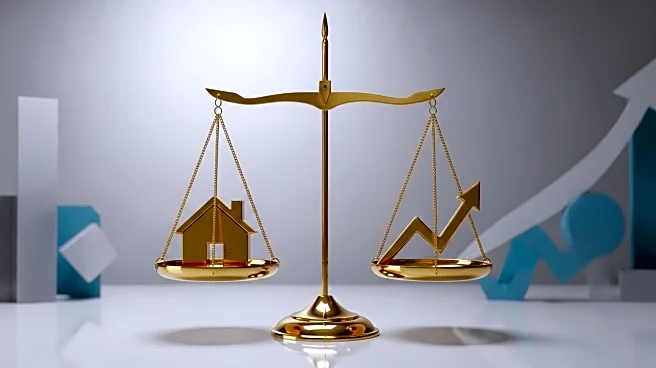What's Happening?
The International Monetary Fund (IMF) has reiterated its call for China to rebalance its economic growth model towards domestic demand. This recommendation comes in light of China's ongoing property crisis,
which has weakened domestic demand for over four years. The IMF's chief economist, Pierre-Olivier Gourinchas, highlighted the risks to financial stability due to contracting real estate investment and weak credit demand. The IMF's advice aligns with U.S. Treasury Secretary Scott Bessent's directive for the global lender to critique China's economic policies more robustly. Gourinchas noted that China's export growth is faltering, with manufactured goods prices declining, indicating limited market capacity to absorb production.
Why It's Important?
The IMF's call for China to focus on domestic demand is significant for global economic stability. China's property crisis has led to non-performing loans in the banking sector, affecting consumer and business sentiment. A shift towards domestic demand could stabilize China's economy, reducing risks of a debt-deflation trap. This move is crucial for U.S. economic interests, as China's economic health impacts global trade dynamics. The IMF's stance may influence U.S. policy towards China, especially in strategic sectors like electric vehicles, where resource misallocation and fiscal costs are concerns.
What's Next?
China's response to the IMF's recommendations will be closely watched by global economic stakeholders. Potential policy shifts towards boosting domestic demand could involve fiscal measures or reforms in the property sector. The U.S. may adjust its trade and economic strategies based on China's actions, impacting bilateral relations. The IMF's continued emphasis on domestic demand could lead to increased scrutiny of China's economic policies, influencing international economic forums and discussions.
Beyond the Headlines
The IMF's focus on China's domestic demand highlights broader economic challenges, including resource allocation and fiscal sustainability. China's pivot to strategic sectors like electric vehicles, while fostering growth, raises concerns about long-term economic balance. The property crisis underscores the need for structural reforms to ensure financial stability. These developments may prompt discussions on global economic governance and the role of international institutions in addressing economic imbalances.









